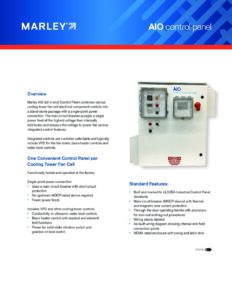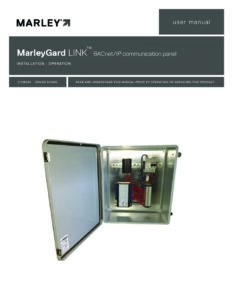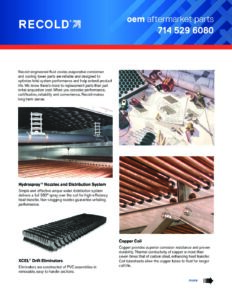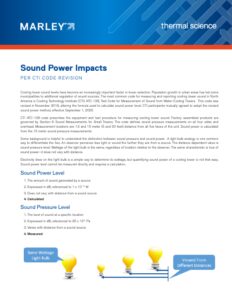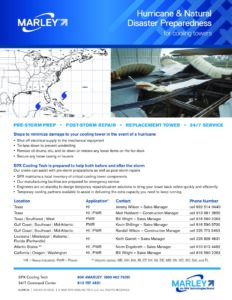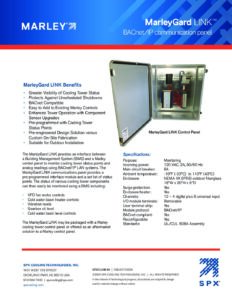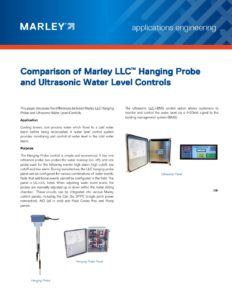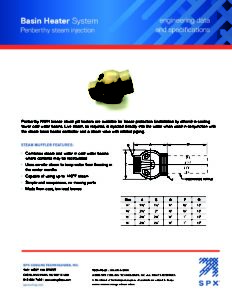Marley AIO (All In One) Control Panel
Marley AIO (all in one) Control Panel combines various cooling tower fan cell electrical component controls into a stand-alone package with a single-point power connection.
MarleyInspections FAQ
The MarleyInspections app is an easy-to-use checklist that simplifies the inspection process for cooling towers.
Marley Parts and Service – Houston Inventory
The Marley Parts and Service facility in Houston is well stocked with critical cooling tower components to support your emergent needs. Available for pick-up, delivery or installation.
Recold OEM Aftermarket Parts
Recold-engineered fluid cooler, evaporative condenser and cooling tower parts are reliable and designed to optimize total system performance and help extend product life.
Sound Power Impacts per CTI Code Revision
The most common code for measuring and reporting cooling tower sound in North America is Cooling Technology Institute (CTI) ATC-128, Test Code for Measurement of Sound from Water-Cooling Towers.
MarleyGard LINK BACnet/IP Communication Panel
The MarleyGard LINK provides an interface between a Building Management System (BMS) and a Marley control panel to monitor cooling tower status points and analog readings using BACnet/IP LAN systems.
Basin Heater Steam Injection
Penberthy NWH bronze steam jet heaters are available for freeze protection (installation by others) in cooling tower cold water basins.

